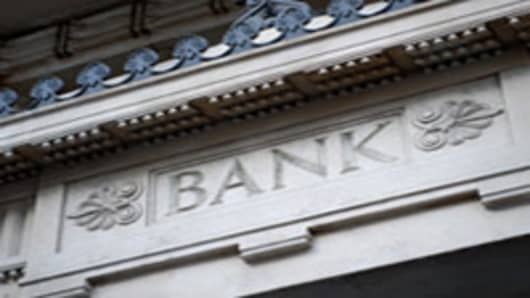Up to 20 of Europe’s top banks will on Wednesday discuss a plan to foil the dominance of the much criticized big three credit agencies at a private meeting of finance directors in Frankfurt.
Some of the banks want to change the culture of information disclosure to the likes of Standard & Poor’s, Moody’s and Fitch to level the playing field for potential new entrants. “They get privileged information,” said one person familiar with the plan. “In future, maybe they should only get a standard pack, putting everyone on an equal footing.”
The proposal, to be discussed at a meeting of the CFO Network — a loose federation of finance directors from the continent’s biggest banks — is among a range of topics on the agenda, but is expected to excite the most attention.
The world’s banks have come under particular pressure from credit rating agencies of late. On Monday, Moody’s announced it was cutting the long-term debt and deposit ratings of 26 Italian banks by up to four notches, part of a series of expected downgrades of groups worldwide to be announced over the coming weeks.
Big bond investors have made substantial investments in their own in-house credit analysts in recent months and years, after the three principal agencies lost credibility over their delayed responses to the fast-evolving financial crisis.
More recently, several initiatives have emerged from companies seeking to establish start-up rating agencies. Both Roland Berger, the consultancy, and a not-for-profit arm of the Bertelsmann media group said last month they planned to raise hundreds of millions of euros to launch their own operations in the area.
There have been previous attempts to try to match the power of S&P and Moody’s. DBRS, a Canadian ratings agency known for its work on structured finance, expanded aggressively into London, betting that regulation would force groups to use more providers of ratings.
Governments in Germany and elsewhere have themselves considered state-sponsored initiatives, though critics have questioned the market credibility of such a model.
Also under discussion at the bank finance directors’ meeting will be the topic of bank liquidity. There is concern among some participants that an already difficult eurozone market for interbank lending could freeze up altogether if international regulators press ahead with plans to exclude loans to other banks from liquidity reserve calculations.
Banks are likely to lobby policymakers on both topics, either through formal bank associations or individually, in the coming months, participants at the Frankfurt meeting said.
Additional reporting by Richard Milne and Stanley Pignal


